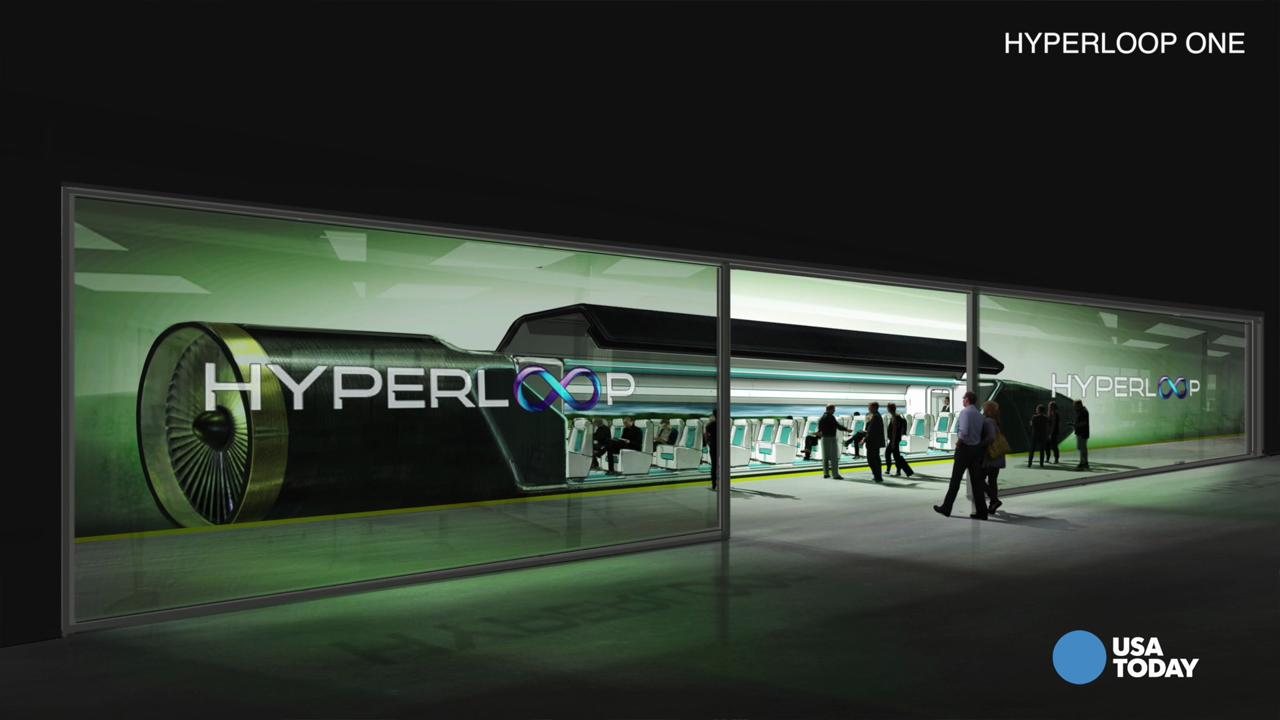Hyperloop One founder skirts suit, targets test

SAN FRANCISCO - HyperloopOne founder Shervin Pishevar declined to comment on the company's soap opera-like lawsuit during a TechCrunch Disrupt interview Wednesday, instead reiterating his company's mission to complete a full scale test loop by early 2017.
"The whole team is full steam ahead," Pishevar said when asked about the status of a messy suit and countersuit that pits HyperloopOne against four former employees, including founding lead engineer and SpaceX veteran Brogan BamBrogan.
BamBrogan has charged the company with harassment, which includes photos of what looks like a noose being left on his desk. Pishevar's lawyers have responded with claims that the noose was a lasso meant to represent BamBrogan's cowboy ways, and that BamBrogan and his "Gang of Four" were conspiring to steal company talent and trade secrets in a quest to start their own company.
Much of the 20-minute interview consisted of Pishevar recapping the space-age promise of hyperloop, a transportation system dreamed up by his friend and Tesla/SpaceX CEO Elon Musk. Hyperloop would allow cargo and people to ride air-tight pods shuttling inside vacuum-sealed tubes at speeds reaching upwards of 800 mph.
San Francisco to Los Angeles would "become just another metro stop," Pishevar said of the proposed 30-minute shuttle.
Last spring, Pishevar, BamBrogan and HyperloopOne CEO Rob Lloyd were all smiles as they conducted a test just north of Las Vegas. A hyperloop sled hit 120-mph in a few seconds before hitting a deep patch of water and slowing down.
At the time, HyperloopOne executives promised a completed 3-mile tube track to better demonstrate the technology by the end of 2016. Pishevar said that time frame has shifted to the first quarter of next year. "We broke ground three weeks ago," he said.
HyperloopOne has raised $130 million in 18 months, some of which has come from Pishevar's own Sherpa Capital. Pishevar was an early investor in Uber.
Pishevar reiterated past observations about hyperloop, including the fact that the technology is most likely to first be rolled out overseas. HyperloopOne has been conducting feasibility studies with various researchers and transportation enterprises in Scandinavia, Russia and the Middle East. Ports, he said, remain a prime target of opportunity.
"Ports are stressed, they need more land to handle the cargo traffic, but that sort of real estate is very expensive, particularly in a city like Los Angeles," he said.
One notion that has been sketched out by HyperloopOne execs is that of a floating offshore cargo facility where ships would transfer their cargo into hyperloop pods, which would then be wisked away in underwater and then land based tubes to distrubution centers sent up where real estate is less costly.
Pishevar also said that working with rail giant Amtrak would be one way to fast-track hyperloop tech.
"Like SpaceX is helping NASA (with rocket launches), we can help Amtrak come into 21st century," he said. "The existing right of ways exist. The first place I’d start is the eastern corridor, which could become bunch of metro stops. You could work in New York but live in (Washington) D.C."
Hurdles for HyperloopOne include the as-yet unproven nature of the technology, concerns over passenger health and safety traveling at the speed of sound, and competition from existing transportation industries such as trucking.
There's also potential competition, including a crowd-sourced company calling itself Hyperloop Transportation Technologies.
Pishevar waved HTT off. "If you spend your time thinking about competition you’re not accomplishing much," he said. "The lessons I've learned from people like (Uber founder) Travis (Kalanick) and Elon is they don’t spend their time thinking about competition, they get up and think about making history and inspiring their teams."
Follow Paste BN tech reporter Marco della Cava @marcodellacava